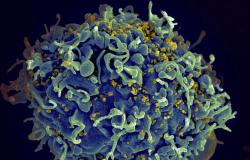Daniel Kahneman, who never took an economics course, but was a pioneer in the branch of the discipline that is based on psychology, leading to the Nobel Prize in Economic Sciences in 2002, died this Wednesday (27) at the age of 90.
His death was confirmed by his partner, Barbara Tversky. She declined to say where he died.
Kahneman, who was long associated with Princeton University and lived in the Manhattan borough of New York City, used his training as a psychologist to advance what came to be called behavioral economics.
The work, done mostly in the 1970s, led to a reevaluation of issues as diverse as medical malpractice, international political negotiations, and the evaluation of baseball talent, all of which he analyzed, primarily in collaboration with Amos Tversky, a cognitive psychologist at the University from Stanford who did groundbreaking work on human judgment and decision making.
Unlike traditional economics, which assumes that human beings generally act in a completely rational manner and that any exceptions tend to disappear as risks increase, the behavioral school is based on exposing innate mental biases that can distort judgment, often with counterintuitive results.
“Its central message could not be more important,” Harvard University psychologist and author Steven Pinker told The Guardian in 2014, “namely, that human reason, left to its own devices, tends to commit a series of of fallacies and systematic errors, so if we want to make better decisions in our personal lives and as a society, we must be aware of these biases and look for alternative solutions. This is a powerful and important discovery.”
Kahneman delighted in pointing out and explaining what he called the brain’s universal “flaws.” The most important of these, according to behaviorists, is loss aversion: why, for example, does losing $100 hurt about twice as much as gaining $100 brings pleasure?
Among its numerous implications, loss aversion theory suggests that it is foolish to frequently check one’s stock portfolio, as the prevalence of pain experienced in the stock market is likely to lead to excessive and possibly self-defeating caution.
In a kind and humble way, Kahneman not only welcomed debate about his ideas, but also enlisted the help of opponents, as well as colleagues, to improve them. When asked who should be considered the “father” of behavioral economics, Kahneman pointed to University of Chicago economist Richard H. Thaler, a younger scholar whom he described in his Nobel autobiography as his second most important professional friend, after by Amos Tversky.
“I’m the grandfather of behavioral economics,” Kahneman allowed in a 2016 interview for this obituary, at a restaurant near his home in lower Manhattan.
This new school of thought did not get its first major public exposure until 1985, at a conference at the University of Chicago, a stronghold of traditional economics.
Kahneman’s public reputation rested heavily on his 2011 book “Fast and Slow: Two Ways to Think,” which appeared on science and business best-seller lists.
Commentator, essayist, mathematical statistician and former options trader Nassim Nicholas Taleb, author of the influential book on improbability “The Black Swan”, placed “Fast and Slow” on the same level as Adam Smith’s “The Wealth of Nations” and ” The Interpretation of Dreams” by Sigmund Freud.
Author Jim Holt, writing in The New York Times Book Review, called “Fast and Slow” “an incredibly rich book: lucid, profound, full of intellectual surprises and self-help value.”
Shane Frederick, a professor at the Yale School of Management and a mentee of Kahneman, said in an email in 2016 that Kahneman had “helped transform economics into a true behavioral science rather than a mere mathematical exercise to delineate logical consequences of an often untenable set of assumptions.”
Taxi drivers and ticket holders
Kahneman propagated his findings with a captivating writing style, using illustrative vignettes that even lay readers could engage with.
He and Thaler pondered, for example, questions like why taxi drivers often work longer hours when opportunities are scarce, but call it a day early when rain-soaked pedestrians are desperate for a ride. The explanation was that many drivers have a fixed daily income target and will retire when they reach it; loss aversion suggests that they will work harder, to achieve this goal, when passengers are scarce.
Kahneman wrote that Thaler inspired him to study, as an experiment, the so-called mental accounting of someone who arrives at the theater and realizes that they have lost either their ticket or the cash equivalent. Kahneman found that people who lost their money would still buy a ticket somehow, while those who lost an already purchased ticket were more likely to go home.
Thaler won the Nobel Prize in Economics in 2017 — officially the Bank of Sweden Prize in Economic Sciences in Memory of Alfred Nobel. Kahneman shared his 2002 Nobel Prize with Vernon L. Smith of George Mason University in Virginia. “If Tversky were alive, he would certainly have shared the Nobel with Kahneman, his longtime collaborator and dear friend,” Holt wrote in his 2011 Times review. Tversky died in 1996 at age 59.
Much of Kahneman’s work is based on the notion—which he did not originate but organized and advanced—that the mind operates in two modes: fast and intuitive (mental activities we are born with, called System One), or slow and analytical , a more complex mode involving experience and requiring effort (System Two).
Others have personified these mindsets as Econs (rational, analytical people) and Humans (emotional, impulsive, and prone to exhibiting unconscious mental biases and a reckless reliance on dubious rules). Kahneman and Tversky used the word “heuristics” to describe these rules of thumb. One of them is the “halo effect”, where by observing a positive attribute of another person, we notice other qualities that are not actually there.
“Before Kahneman and Tversky, people who thought about social problems and human behavior tended to assume that we are primarily rational agents,” Times columnist David Brooks wrote in 2011. “They assumed that people have control over the parts They assumed that people are basically sensible utility maximizers, and that when they depart from reason it is because some passion like fear or love has distorted their judgment.”
But Kahneman and Tversky, he continued, “provided a different view of human nature.”
As Brooks described it: “We are players in a game we do not understand. Most of our own thinking is below consciousness.” He added: “Our biases often make us desire the wrong things. Our perceptions and memories are slippery, especially about our own mental states. Our free will is limited. We have much less control over ourselves than we thought.”
Kahneman and Tversky’s work, he concluded, “will be remembered hundreds of years from now.”
In the shadow of the Nazis
Daniel Kahneman was born on March 5, 1934, into a family of Lithuanian Jews who had emigrated to France in the early 1920s. After the fall of France to Nazi Germany in World War II, Daniel, like other Jews, was forced to wear a Star of David on the outside of their clothes. His father, head of research at a chemical factory, was arrested and interned at a station before being deported to an extermination camp, but was then released under mysterious circumstances. The family escaped to the Riviera and then to central France, where they lived in a converted chicken coop.
Daniel’s father died shortly before D-Day in June 1944, and Daniel, then an eighth grader, and his sister, Ruth, ended up in British-controlled Palestine with their mother, Rachel.
He graduated from the Hebrew University of Jerusalem with a major in psychology, completing his university studies in two years. In 1954, after the founding of the state of Israel, he was drafted into the Israel Defense Forces as a second lieutenant.
After a year as a platoon leader, he was transferred to the psychology branch, where he was occasionally given assignments to evaluate candidates for officer training.
The unit’s ability to predict performance, however, was so poor that he coined the term “illusion of validity”, meaning a cognitive bias in which someone demonstrates overconfidence in the accuracy of their judgments. Two decades later, this “illusion” has become one of the most cited elements in psychology literature.
He married Irah Kahan in Israel and they soon left for the University of California, Berkeley, where he received a scholarship. He earned his doctorate in psychology there. He returned to Israel to teach at the Hebrew University from 1961 to 1977. The marriage ended in divorce. (Kahneman held dual citizenship, in the United States and Israel.)
In 1978, Kahneman married Anne Treisman, a renowned British psychologist who received the National Medal of Science in 2013 from President Barack Obama. She passed away in 2018. He and Treisman were longtime friends of the Tverskys.
In addition to Barbara Tversky, he is survived by a son and a daughter from his first marriage, Michael Kahneman and Lenore Shoham; two stepdaughters from his second marriage, Jessica and Deborah Treisman; two stepsons from the same marriage, Daniel and Stephen Treisman; three grandchildren; and four stepdaughters. He lived in New York’s Greenwich Village for many years.
Kahneman’s North American career included teaching positions at the University of British Columbia and Berkeley before joining the faculty at Princeton University in 1993.
His most recent book is “Noise: A Defect in Human Judgment” (2021), written with Cass Sunstein and Olivier Sibony. In the Times Book Review, Steven Brill called it “a tour de force of erudition and clear writing.”
The book analyzes how human judgment often varies widely even among experts, as reflected in court rulings, insurance premiums, medical diagnoses, and corporate decisions, as well as in many other aspects of life.
And he distinguishes between predictable biases — a judge, for example, who consistently sentences black defendants more harshly — and what the authors call “noise”: less explainable decisions resulting from what they define as “unwanted variability in judgments.”
In one example, the authors report that doctors are more likely to order cancer screenings for patients they see early in the morning than in the afternoon.
The book, like his others, was an offshoot of Kahneman’s lifelong quest to understand how the human mind works—what thought processes lead people to make the kinds of decisions and judgments they do as they navigate a complex world. . And at the end of his life, he recognized that there was still much more to be known.
In an interview with Kara Swisher on her Times podcast “Sway” in 2021, he said, “If I were starting my career now, I would be choosing between artificial intelligence and neuroscience, because those are now particularly exciting ways of looking at human nature. “.
Tags: Daniel Kahneman father behavioral economics dies Market
--





